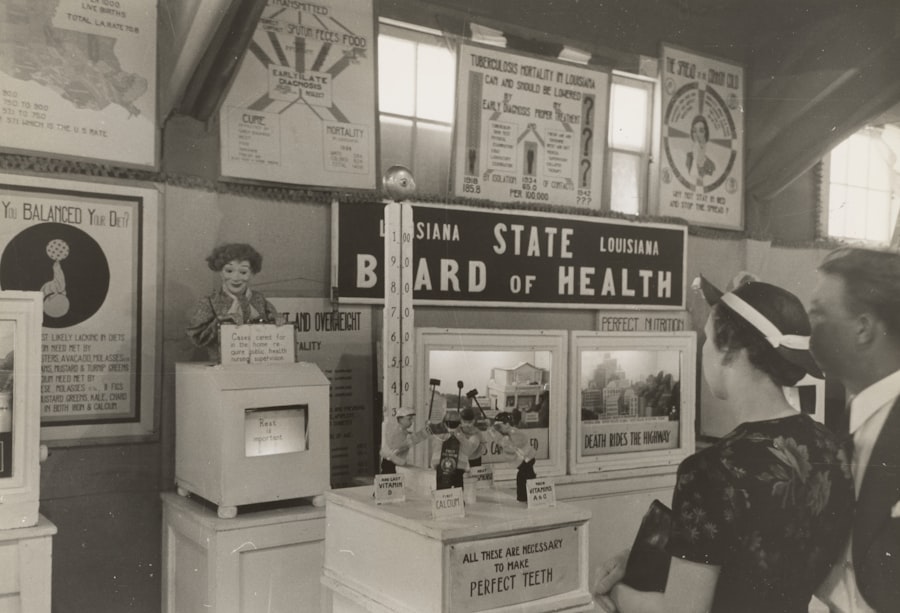Healthcare marketing plays a pivotal role in the modern medical landscape, where competition is fierce and patient expectations are continually evolving. The primary objective of healthcare marketing is to connect healthcare providers with patients, ensuring that the right information reaches the right audience at the right time. This connection is not merely transactional; it is about building relationships that foster trust and loyalty.
In an era where patients are increasingly empowered to make informed decisions about their health, effective marketing strategies can significantly influence their choices. Moreover, healthcare marketing encompasses a wide array of activities, from traditional advertising to digital outreach, all aimed at promoting services, educating patients, and enhancing the overall patient experience. For instance, a well-executed marketing campaign can raise awareness about preventive care services, thereby encouraging patients to seek timely medical attention.
This not only benefits the patients by improving their health outcomes but also helps healthcare organizations by increasing patient engagement and retention. As such, understanding the nuances of healthcare marketing is essential for any organization looking to thrive in this dynamic environment.
Key Takeaways
- Effective healthcare marketing is crucial for building trust and attracting patients in a competitive industry.
- Choosing the right healthcare marketing agency involves evaluating expertise, experience, and tailored strategies.
- Successful campaigns demonstrate the impact of targeted marketing on patient engagement and brand growth.
- Digital marketing plays a pivotal role in reaching audiences through online platforms and personalized content.
- Emerging trends and innovations are shaping the future of healthcare marketing, emphasizing technology and patient-centric approaches.
What to Look for in a Healthcare Marketing Agency
When selecting a healthcare marketing agency, several critical factors should be considered to ensure alignment with your organization’s goals and values. First and foremost, expertise in the healthcare sector is paramount. An agency that specializes in healthcare marketing will possess a deep understanding of industry regulations, patient demographics, and the unique challenges faced by healthcare providers.
This expertise allows them to craft tailored strategies that resonate with target audiences while adhering to compliance standards such as HIPAA. Additionally, evaluating the agency’s portfolio and case studies can provide insight into their capabilities and past successes. Look for agencies that have demonstrated measurable results in similar projects, whether through increased patient acquisition rates or enhanced brand visibility.
Furthermore, consider their approach to digital marketing, as this is an increasingly vital component of healthcare marketing strategies. An agency that excels in SEO, social media management, and content marketing can help your organization reach a broader audience and engage with patients more effectively.
Top Healthcare Marketing Agencies: A Comparison

In the realm of healthcare marketing, several agencies have distinguished themselves through innovative strategies and successful campaigns. One notable agency is Geonetric, which specializes in digital marketing for healthcare organizations. They offer a comprehensive suite of services, including website design, search engine optimization (SEO), and content strategy tailored specifically for the healthcare sector.
Their focus on user experience ensures that patients can easily navigate websites to find the information they need. Another prominent player is Healthgrades, which combines technology with marketing expertise to enhance patient engagement. Their platform allows healthcare providers to manage their online reputation while also offering tools for patient acquisition and retention.
Healthgrades’ data-driven approach enables organizations to make informed decisions based on patient behavior and preferences. A third agency worth mentioning is Cardinal Digital Marketing, known for its results-oriented strategies that leverage analytics to drive growth. They focus on creating customized marketing plans that align with each client’s specific goals, whether that involves increasing patient volume or enhancing brand awareness.
By utilizing advanced tracking and reporting tools, Cardinal Digital Marketing provides clients with clear insights into campaign performance.
Case Studies: Successful Healthcare Marketing Campaigns
| Campaign Name | Healthcare Sector | Objective | Key Strategy | Results | Duration |
|---|---|---|---|---|---|
| Flu Awareness Drive | Public Health | Increase flu vaccination rates | Social media engagement and local events | Vaccination rates increased by 35% | 3 months |
| Heart Health Month | Cardiology | Promote heart disease prevention | Educational webinars and influencer partnerships | Website traffic increased by 50%, 20% rise in screenings | 1 month |
| Diabetes Management Program | Endocrinology | Improve patient adherence to treatment | Mobile app reminders and personalized coaching | Patient adherence improved by 40% | 6 months |
| Mental Health Awareness | Mental Health | Reduce stigma and increase counseling sign-ups | Storytelling campaigns and community workshops | Counseling sign-ups increased by 60% | 4 months |
| Healthy Eating Initiative | Nutrition | Encourage healthy eating habits | Recipe sharing and nutrition challenges | Engagement rate of 45%, 25% increase in clinic visits | 2 months |
Examining successful healthcare marketing campaigns can provide valuable lessons for organizations looking to enhance their own strategies. One exemplary case is the “Get Covered” campaign launched by the Centers for Medicare & Medicaid Services (CMS). This initiative aimed to educate the public about health insurance options available under the Affordable Care Act (ACA).
Through a multi-channel approach that included social media outreach, television ads, and community events, CMS successfully increased enrollment rates among previously uninsured populations. The campaign’s emphasis on clear messaging and accessibility played a crucial role in its success. Another noteworthy example is the “Know Your Numbers” campaign by the American Heart Association (AHA).
This initiative focused on raising awareness about cardiovascular health by encouraging individuals to monitor key health metrics such as blood pressure and cholesterol levels. The AHA utilized a combination of social media engagement, educational resources, and partnerships with healthcare providers to disseminate information effectively. The campaign not only educated the public but also fostered collaboration between patients and providers, ultimately leading to improved health outcomes.
How Healthcare Marketing Agencies Can Boost Your Brand
Healthcare marketing agencies can significantly enhance your brand’s visibility and reputation through strategic initiatives tailored to your specific needs. By leveraging their expertise in market research and audience segmentation, these agencies can identify key demographics that are most likely to engage with your services. This targeted approach ensures that marketing efforts are not only efficient but also effective in reaching potential patients.
Furthermore, a well-crafted brand narrative can differentiate your organization in a crowded marketplace. Healthcare marketing agencies excel at developing compelling stories that resonate with patients on an emotional level. By highlighting your organization’s values, mission, and unique offerings, they can create a strong brand identity that fosters trust and loyalty among patients.
This emotional connection is particularly important in healthcare, where patients often seek providers who understand their needs and concerns.
The Role of Digital Marketing in Healthcare

Digital marketing has transformed the way healthcare organizations connect with patients and promote their services. With the rise of online search behavior, patients increasingly turn to the internet for health-related information before making decisions about their care. As such, having a robust digital presence is no longer optional; it is essential for success in today’s healthcare landscape.
Search engine optimization (SEO) plays a critical role in ensuring that your organization appears prominently in search results when potential patients seek relevant information. By optimizing website content with targeted keywords and providing valuable resources, healthcare organizations can improve their visibility online. Additionally, social media platforms offer unique opportunities for engagement and interaction with patients.
Through regular updates, educational content, and community-building efforts, organizations can foster relationships that extend beyond traditional patient-provider interactions.
Building Trust and Credibility in Healthcare Marketing
Trust is a cornerstone of effective healthcare marketing. Patients are more likely to choose providers they perceive as credible and trustworthy. Therefore, establishing credibility through transparent communication and ethical marketing practices is essential for any healthcare organization.
One effective strategy is to showcase patient testimonials and success stories on your website and social media channels. These authentic narratives provide social proof that can influence potential patients’ decisions. Moreover, maintaining an active presence in the community can further enhance your organization’s reputation.
Participating in local health fairs, sponsoring community events, or offering free health screenings demonstrates a commitment to public health and well-being. Such initiatives not only build goodwill but also position your organization as a trusted resource within the community.
The Future of Healthcare Marketing: Trends and Innovations
As technology continues to evolve, so too does the landscape of healthcare marketing. One significant trend is the increasing use of artificial intelligence (AI) and machine learning to analyze patient data and personalize marketing efforts. By leveraging these technologies, healthcare organizations can gain insights into patient preferences and behaviors, allowing for more targeted campaigns that resonate with specific audiences.
Additionally, telehealth has gained prominence as a result of recent global events, leading to new opportunities for marketing strategies focused on virtual care services. As more patients seek remote consultations and digital health solutions, organizations must adapt their messaging to highlight these offerings effectively. Furthermore, video content is becoming an increasingly popular medium for engaging patients.
From educational videos explaining medical procedures to virtual tours of facilities, video content can convey complex information in an accessible format while fostering a sense of connection between providers and patients. In conclusion, the future of healthcare marketing will be shaped by technological advancements and changing patient expectations. Organizations that embrace innovation while prioritizing trust and transparency will be well-positioned to thrive in this dynamic environment.



